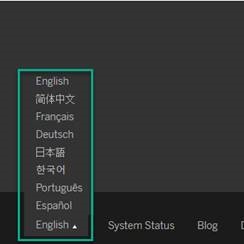Does your query contain “special characters”?
That’s any of the following:
@ + # - _ / \ . , : = * ? ( ) [ ] $
Our search engine sometimes interprets these characters as “logical operators” rather than literal strings. For example, you might intend a : character in your query to be a colon. However, search may be interpreting it and the text around it as a field query. That will change what your query means to the search engine, and may affect the results.
In order to avoid this, do one of the following:
- Enclose your query in quotes, such that
binarytuplewriter::writetuplebecomes“binarytuplewriter::writetuple”. - Enclose your query in the “no syntax block” notation, such that
binarytuplewriter::writetuplebecomes<@- binarytuplewriter::writetuple -@>. (Please note the spaces separating the notation from the query.)
This technique is often effective when you’ve pasted an error message or log file entry straight into search.
Does your query contain “personal” information?
That could be a pathname that’s unique to your local computer, a server name that’s unique to your environment, or a user name that’s unique to your organization. Error messages sometimes contain such personalized information, such as:
Errors occurred while trying to load the workbook “c:\users\mikeb\mike’s files\reports\sales\april2017\US_sales.twbx” …
A query like this will never return a relevant article or community post. That’s because our writers cannot know what your pathname, server name or user name will be.
The solution is to pick the longest string from the error message likely to return a relevant document. In the case above, try searching on “Errors occurred while trying to load the workbook”. This is more specific than just “Errors occurred”, and is likely to save you time when scanning the search returns for the material you need. At the same time, it excludes the personalized information that will cause the search to fail.
Want to refine your search returns?
Searching in Chinese, Japanese or Korean?
Our search engine has been optimized to enable effective searching in Chinese, Japanese and Korean. In order to do that, it uses word tokenizers to identify and separate expressions into individual groups of inseparable characters (words). Search indexing uses these separate words (rather than the individual characters) to assign relevance ranking, and to perform retrieval.
A more detailed description of how this works, and how to use it, is available at Chinese Japanese Korean Language Improved Relevance, a document provided by our search provider, Coveo. Please note that PDF downloads are available for Simplified Chinese, Japanese, Korean and Thai translations of this document.
Cannot find the topic in the localized page, try searching for the topic in the English language version
Change to the English page:

- Go to the lower left corner of the web page.
- Click the down arrow button to select "English".
- Go to the https://www.tableau.com/en-us page.